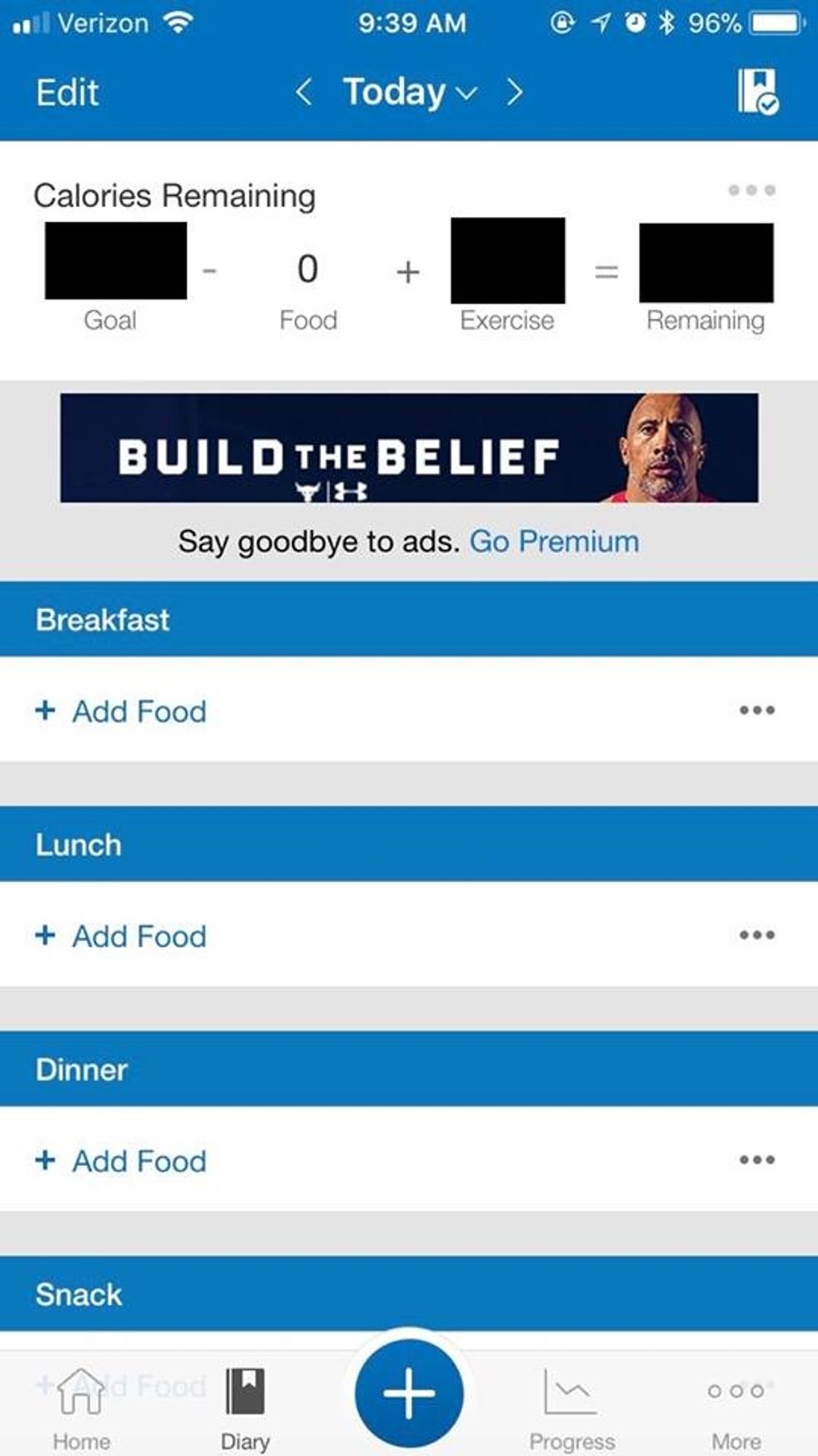Everything You Need To Know About Macronutrients, Because A Diet Should Be More Than Calories
Pay attention to what you're eating, not just how much you're eating.
Plenty of people are familiar with the "calories in, calories out" (CICO) method of dieting which can be used for losing, gaining, or maintaining weight. This method relies on calculating a person's total daily energy expenditure (TDEE) to ensure that they are not overeating or undereating to achieve their desired weight. TDEE considers a person's height, weight, age, gender, and level of activity to determine what their caloric intake should be — some calculators can factor in body fat percentage as well. When I used a TDEE calculator online, it said that my TDEE would be 1,990 calories if I was trying to maintain my weight, but are all calories created equal? I'd argue that they're not.
It might seem obvious to some of you that 1,990 calories of macaroni and cheese are not healthy at all compared to 1,990 calories of varied foods (fruit, veggies, meat, bread, etc.).
However, people who swear by CICO might not agree with that statement because according to CICO, as long as you are in a caloric deficit (burning more calories than you're consuming) then you should lose weight. Despite being in a caloric deficit, the diet composed of macaroni and cheese doesn't have a good source of fiber or protein and is extremely heavy on carbs and fat. Our bodies need more than just carbs and fat to get us through the day, which is what makes macro-tracking so important.
Fats are really just misunderstood.
There are tons of foods at the grocery store that say "reduced-fat" or "20 percent less fat" as a marketing ploy to make them seem healthier. Unfortunately reducing the amount of fat in a product doesn't make it inherently healthy because fat isn't inherently unhealthy, although it is important to limit the amount of saturated fat we consume. According to Washington State University, for the average person, 20-35 percent of your daily calories should come from fat. Additionally, its role in the body is storing energy reserves, transporting fat-soluble vitamins, protecting vital organs, and insulation. However, it's important to note that only 10 percent should come from saturated fat (butter, coconut oil, full-fat dairy) so it's not a free-for-all.
Carbohydrates are controversial.
With the craze of the keto diet and the myriad of other low-carb diets that promise fast weight loss, carbs can be quite the conversation starter. Here's the thing: our bodies NEED carbs. Carbs fuel our body during high-intensity exercise, they spare proteins that preserve muscle mass during exercise, and they fuel our brains! Carbohydrates are so important to our health, and it's safe to say that carbs shouldn't be demonized. In fact, they're so important that the recommended daily allowance of carbs is 40-50 percent of a sedentary individual's caloric intake, with the amount of recommended carbs increasing with the person's activity level. Some healthier sources of carbs are grains, dairy, and fruit.
Protein is crucial.
When compared with the previous macros, proteins are viewed neutrally at worst, and positively at best. If you're into bodybuilding then you know what a vital role protein plays in preserving muscles during exercise as I mentioned before, but perhaps if you're not that into fitness then proteins might not seem that important. However inconsequential proteins might seem to non-body builders, they're vital to our tissue structure, metabolism, and the pH balance within our bodies. The recommended allowance of protein is highly variable and depends on both weight and activity level. Other than meat, good sources of protein include legumes, soy, lentils, nuts, whole grains, and seeds.
To be clear, I think that CICO is a wonderful, necessary tool when trying to achieve certain health goals. However, CICO by itself isn't enough as demonstrated by my earlier example – again, 1,900 calories in macaroni and cheese aren't the same as 1,900 calories of a balanced diet. While you might lose weight in a caloric deficit doing only CICO, you could potentially be doing harm by losing muscle mass or depriving yourself of vital fuel like carbs. As I said before, macro-tracking isn't one-size-fits-all. Your activity level, lifestyle, and goals will determine what your breakdown will be. Additionally, if you have a history of disordered eating, macro-tracking might not be the best choice for you as it could exacerbate the tendency to obsess over numbers and portion sizes.
Whatever you choose to do, please always consult a doctor or dietitian before making any large changes to your diet or lifestyle.





 Where you track your food and see how many calories you're "allowed"
Where you track your food and see how many calories you're "allowed" Where you can see your projected weight changes
Where you can see your projected weight changes




















